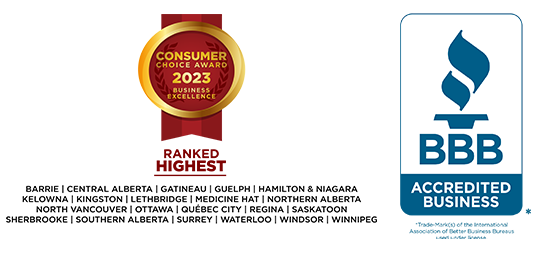Dealing With Debts Of A Deceased Bankrupt
2015-09-22 minute read
Losing a loved one can be one of the most emotional time and stressful experience. Trying to come to terms and navigate through financial concerns can be overwhelming. For instance, what if your loved one has filed for bankruptcy and dies before being discharged from bankruptcy? Is the bankruptcy over for that person? How does it affect the administration of the deceased person’s estate? What if it was a joint bankruptcy and the other debtor is still alive?

While it does not happen often, I had to deal with two situations where the bankrupts died before being granted a discharge, thus prompting grieving family members to ask me what happens to the deceased bankrupt’s debt in such situation.
A common misconception that needs clarification, is the assumption that because a bankrupt is dead, the debts are automatically wiped out. This is never the case. The deceased bankrupt still owes debts to his or her creditor as long as he or she has not been officially granted a discharge from bankruptcy. It is therefore important to understand that when a bankrupt debtor dies his or her debts are not passed on to their survivors or heirs, unless the deceased bankrupt’s debts were joint. You are only liable for debts you have contractually agreed to pay and actually signed for. The survivors or heirs cannot be held liable for anyone’s debts regardless of marriage, but the bankrupt’s debts do still have certain consequences for their survivors, and heirs.
First and foremost upon death of a deceased person – whether in bankruptcy or not, family must immediately seek legal counsel; and in the case of the undischarged bankrupt, the Trustee needs to be advised accordingly with a copy of the Death Certificate. Additionally following need to be noted:Upon death of a bankrupt before he or she is officially discharge from bankruptcy, the creditors (lenders) of the deceased bankrupt will expect to receive payments from survivors or heirs, even though it is not legal to attempt to collect the deceased bankrupt’s debts from either spouse or heirs. Nevertheless, creditors will look to the estate of the deceased bankrupt for payments. The executor of the estate of the deceased bankrupt is responsible to ensure that all legitimate bills and debts outstanding are paid out from the proceeds of the estate of the deceased bankrupt. If the deceased bankrupt had a Life Insurance Policy without properly designated beneficiaries, the life insurance proceeds will be forwarded to the Trustee in Bankruptcy and where there are designated beneficiaries, Trustee is not entitled to the death benefit proceeds.
If the bankrupt is eligible to receive a CPP death benefit, that benefit is paid to the Trustee for distribution to the creditors of the deceased bankrupt. However, the Trustee pursuant to section 136 (1) (a) of BIA is required to pay reasonable funeral expenses of the bankrupt and thus in most cases, the death benefit is used to pay funeral expenses and not distributed to the creditors.
Furthermore, in a situation when the debtor dies while in a consumer proposal, there is no immediate effect as long as the proposal payments are being met. However, the executor for the debtor could choose to complete the proposal, if required.
Understanding what types of debts are involved in bankruptcy is essential to easing the stress of grieving survivors. If the deceased bankrupt leaves behind secured debts, the lenders having security over the secured assets may either repossess them or in the alternate, if the surviving spouse or heirs wish to keep them, they will have to enter into a new lender-agreement. Should the secured lender repossess them, then they will have no further recourse to go after the surviving spouse or heirs for any residual shortfall. This is typical for a financed vehicle. A mortgage, on other hand and under certain terms and conditions can be transferred to the surviving spouses but would require a probate.
In the event of unsecured debts left behind by the deceased bankrupt, the surviving spouse and heirs are not liable for the deceased bankrupt’s debts and need not worry if the deceased has no assets. However, the creditors of deceased debtor / bankrupt can go after the estate of the deceased.
In the above context, it is equally necessary to understand how Will, Trust and Probate come into play upon death of a deceased debtor / bankrupt. Wills and Trusts are legal documents that serve to distribute the assets of the deceased upon death or in the event of legal incapacitation. It must also be understood that debts cannot be left behind for anyone in a Will. Probate, by contrast, is a legal proceeding typically conducted in the court which determines the validity of the Will and sheds light on who will serve as an executor or administrator of an estate, and which parties constitute valid heirs when there is no Will. It is also important to understand that a Will does not take effect until its creator dies. Another fact to keep in mind, is that the Probate does not give the executors their power and authorization to act on behalf of an estate of the deceased. Only a Will does that.
A Trust is a good way to leave assets to your children or other heirs because it avoids lengthy and costly probate court settlements. There are two basic types of trust: revocable (or living), and irrevocable. A living trust can be changed during the lifetime of its creator or grantor. An irrevocable trust cannot be changed. Trust, when properly set up can prevent the deceased bankrupt’s creditors to go after them.
Probate is not needed to transfer certain kind of assets such as a property held in joint names (since the joint ownership carries with it a right of survivorship) and as well as any other assets, like Life Insurance Policy, RRSPs, RRIFs held in joint names. However, Probate may in certain circumstances, make it easier in situations involving land transfer. Land registry will generally require Probate in order to transfer land (property) out of the name of the deceased and into the name of someone else. Therefore, if a deceased person owns real estate only in his or her name, the real estate cannot be sold or transferred without a probate.
To learn more about what happens when a bankrupt dies while still in bankruptcy, contact MNP LTD, as each situation may be unique and may require a different solution.

